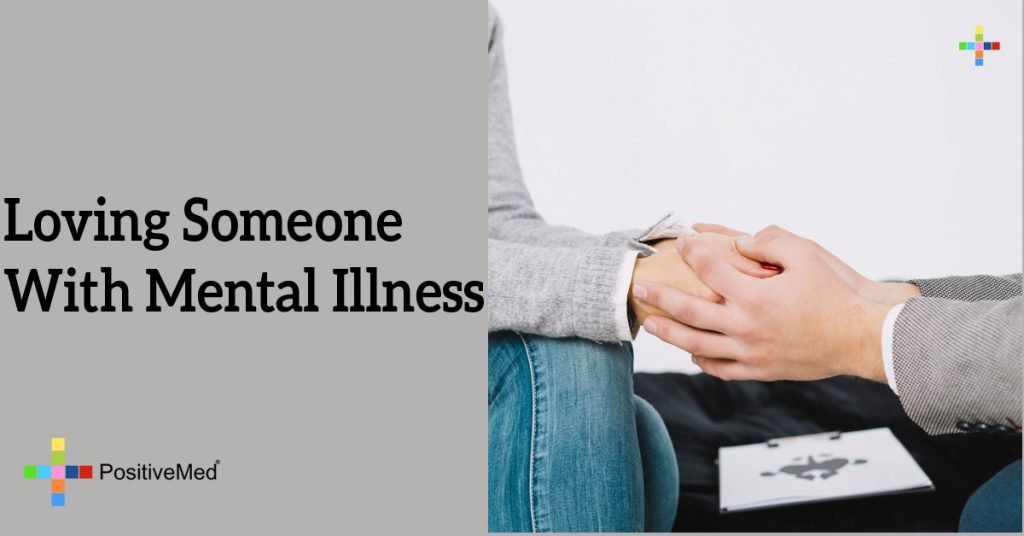
Loving Someone With Mental Illness
By PositiveMed-team
Edited By Stephanie Dawson
If you are having difficulty accepting the mental illness of a relative or other loved one you should know that many are dealing with similar issues. Most share the belief that mental illness of a close relative is a tragic event that will change their lives, in some ways that may be true. Strange unpredictable can be a devastating experience and the level of anxiety can increase with each episode of the disease.
It can seem like an impossible task to care for someone who does not want to be cared for, and sometimes seems they are not taking care of themselves. People with mental illness, and their families, often realize they learned long ago knowledge and skills to cope with their illnesses. They discover strengths they didn’t know they had and learn to handle other life situations and challenges.

Here are some recommendations on handling the mental illness of a family member:
Find truthful scientific information from your doctor or validated sources. Ask your professional anything that can resolve your urges and doubts. Speaking with other families that have the disease is an excellent strategy of learning more about the conditions, there are often support groups for this.
You cannot cure their mental illness but you can help them handle it, minimize symptoms, or improve quality of life.
No one is at fault, it’s a disease. Try not to place blame on them or yourself.
Mental illness will affect the family system and all members of the family handle it in different ways. It can become an stressor, it depends in the needs and resources we have.
Sometimes we need to accept our limitations as individuals and as a family, sometimes people can’t accept that, it’s a process.
Avoid labeling with negative statements, separate the illness from the person, the person is not defined by the illness, it needs to be defined by its potential not by limitations.
It’s normal to feel abandoned, everyone has needs and desires, you need to make yourself a priority from time to time. The needs of your mentally ill loved ones are not necessarily top priority in your life.
Mental illness is not a reason for shame or public exposure.
Set realistic expectations of the needs and desire of the family.
Don’t be afraid to ask if he or she is thinking of hurting himself or others. People with mental illness commit suicide more frequently.
Give them responsibilities, don’t assume all of them yourself, give him or her some challenges.
Express your feelings, talk about what you need, what you fear, and what you expect.
You are not alone, look for support groups and meetings with people that are caretakers or with experts.
Look for the positive side: you will become more resilient, sensitive, receptive, communicative, and mature with this experience. You will become less egocentric and more altruistic, feeling the joy of helping those you love.





